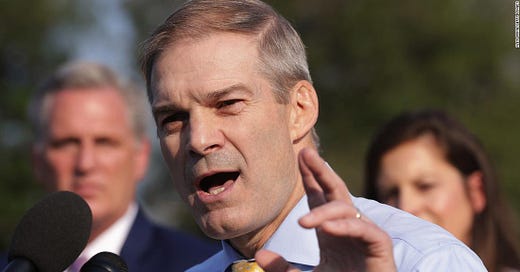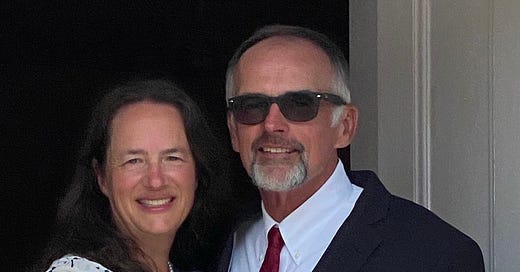
On July 20, 1969, American astronauts Neil Armstrong and Edwin “Buzz” Aldrin became the first humans ever to land, and then to walk, on the moon.
They were part of the Apollo program, designed to put an American man on the moon. Their spacecraft launched on July 16 and landed back on Earth in the Pacific Ocean July 24, giving them eight days in space, three of them orbiting the moon 30 times. Armstrong and Aldrin spent almost 22 hours on the moon’s surface, where they collected soil and rock samples and set up scientific equipment, while the pilot of the command module, Michael Collins, kept the module on course above them.
The American space program that created the Apollo 11 spaceflight grew out of the Cold War. The year after the Soviet Union launched an artificial satellite in 1957, Congress created the National Aeronautics and Space Administration (NASA) to demonstrate American superiority by sending a man into space. In 1961, President John F. Kennedy moved the goalposts, challenging the country to put a man on the moon and bring him safely back to earth again. He told Congress: “No single space project in this period will be more impressive to mankind, or more important for the long-range exploration of space; and none will be so difficult or expensive to accomplish.”
A year later, in a famous speech at Rice University in Texas, Kennedy tied space exploration to America’s traditional willingness to attempt great things. “Those who came before us made certain that this country rode the first waves of the industrial revolutions, the first waves of modern invention, and the first wave of nuclear power, and this generation does not intend to founder in the backwash of the coming age of space. We mean to be a part of it—we mean to lead it,” he said.
[T]here is new knowledge to be gained, and new rights to be won, and they must be won and used for the progress of all people…. We choose to go to the moon in this decade and do the other things, not because they are easy, but because they are hard, because that goal will serve to organize and measure the best of our energies and skills….”
But the benefits to the country would not only be psychological, he said. “The growth of our science and education will be enriched by new knowledge of our universe and environment, by new techniques of learning and mapping and observation, by new tools and computers for industry, medicine, the home as well as the school.” The effort would create “a great number of new companies, and tens of thousands of new jobs…new demands in investment and skilled personnel,” as the government invested billions in it.
“To be sure, all this costs us all a good deal of money…. I realize that this is in some measure an act of faith and vision, for we do not now know what benefits await us.”
Seven years later, people across the country gathered around television sets to watch Armstrong step onto the moon and to hear his famous words: “That's one small step for [a] man, one giant leap for mankind.”
President Richard Nixon called the astronauts from the White House: “I just can't tell you how proud we all are of what you have done,” he said. “For every American, this has to be the proudest day of our lives…. Because of what you have done, the heavens have become a part of man's world…. For one priceless moment in the whole history of man, all the people on this Earth are truly one…in their pride in what you have done, and…in our prayers that you will return safely to Earth.”
And yet, by the time Armstrong and Aldrin were stepping onto the moon in a grand symbol of the success of the nation’s moon shot, Americans back on earth were turning against each other. Movement conservatives who hated post–World War II business regulation, taxation, and civil rights demanded smaller government and championed the idea of individualism, while those opposed to the war in Vietnam increasingly distrusted the government.
After May 4, 1970, when the shooting of college students at Kent State University in Ohio badly weakened Nixon’s support, he began to rally supporters to his side with what his vice president, Spiro Agnew, called “positive polarization.” They characterized those who opposed the administration as anti-American layabouts who simply wanted a handout from the government. The idea that Americans could come together to construct a daring new future ran aground on the idea that anti-war protesters, people of color, and women were draining hardworking taxpayers of their hard-earned money.
Ten years later, former actor and governor of California Ronald Reagan won the White House by promising to defend white taxpayers from people like the “welfare queen,” who, he said, “has 80 names, 30 addresses, 12 Social Security cards and is collecting veteran’s benefits on four non-existing deceased husbands.” Reagan promised to champion individual Americans, getting government, and the taxes it swallowed, off people’s backs.
“In this present crisis, government is not the solution to our problem; government is the problem,” Reagan said in his Inaugural Address. Americans increasingly turned away from the post–World War II teamwork and solidarity that had made the Apollo program a success, and instead focused on liberating individual men to climb upward on their own terms, unhampered by regulation or taxes.
This week, on July 20, 2021, 52 years to the day after Armstrong and Aldrin stepped onto the moon, former Amazon CEO Jeff Bezos and four passengers spent 11 minutes in the air, three of them more than 62 miles above the earth, where many scientists say space starts. For those three minutes, they were weightless. And then the pilotless spaceship returned to Earth.
Traveling with Bezos were his brother, Mark; 82-year-old Wally Funk, a woman who trained to be an astronaut in the 1960s but was never permitted to go to space; and 18-year-old Oliver Daemen from the Netherlands, whose father paid something under $28 million for the seat.
Bezos’s goal, he says, is not simply to launch space tourism, but also to spread humans to other planets in order to grow beyond the resource limits on earth. The solar system can easily support a trillion humans,” Bezos has said. “We would have a thousand Einsteins and a thousand Mozarts and unlimited—for all practical purposes—resources and solar power and so on. That's the world that I want my great-grandchildren's great-grandchildren to live in.”
Ariane Cornell, astronaut-sales director of Bezos’s space company Blue Origin, live-streamed the event, telling the audience that the launch “represents a number of firsts.” It was “[t]he first time a privately funded spaceflight vehicle has launched private citizens to space from a private launch site and private range down here in Texas. It’s also a giant first step towards our vision to have millions of people living and working in space.”
In 2021, Bezos paid $973 million in taxes on $4.22 billion in income while his wealth increased by $99 billion, making his true tax rate 0.98%. After his trip into the sky, he told reporters: “I want to thank every Amazon employee and every Amazon customer because you guys paid for all of this…. Seriously, for every Amazon customer out there and every Amazon employee, thank you from the bottom of my heart very much. It’s very appreciated.”
—-
Notes:
https://www.businessinsider.com/jeff-bezos-space-flight-passenger-revealed-wally-funk-2021-7
https://www.washingtonpost.com/business/2021/06/08/wealthy-irs-taxes/
https://www.businessinsider.com/jeff-bezos-thanks-amazon-customers-for-paying-trip-to-space-2021-7








Good morning all! I admit that my take on all of this is going to be idiosyncratic, but when is it not?!
Firstly, the space program of the 1960s. My father was an aeronautics engineer who designed telecommunications satellites--most of which are the ones folks in the developed world (and beyond--he had a very interesting career!) have used since the 1960s for fun stuff like telephone calls. For us the space program was central to our lives and I followed it closely. My dad was also a raging lefty--which could make it hard to work for some of the people who paid his salary--and I think the thing that disappointed him most about the direction the space program went after 1968 was the fact that despicables like Nixon and Reagan were in charge of it after the hopefulness of the Kennedy years. My sorrow at the death of Robert Kennedy in 1968 and my disgust that Nixon got to be the one to congratulate the Apollo team still resonates in me: it was a pivotal moment in my life.
Secondly, the current space programs, both publicly funded and private (i.e. Bezos and Branson and their ilk): The USA has done a terrible job of maintaining and expanding a responsible and useful space program. The fact that there has never been a good replacement for the space shuttle; the fact that the decision to abandon deep space development for decades while littering our near-space environment with junk has hampered the growth of a responsible program: these are elements of shortsightedness that generations of Republican administrations (and arses like Clinton, whose programs were driven by popularity ratings) have wrought. The most innovative stuff is coming out of the three private companies--Space-X, Virgin Galactic, and Blue Origin--because these sociopaths (and really, they are all three sociopaths) have enough money to be able to throw it around with wild abandon, while the USA pinches pennies and lets its own citizens starve and struggle. I know that a robust NASA will not solve world hunger, but again: isn't that the job of government, not private individuals?
Thirdly, Bezos and Amazon: I admit I am conflicted. The guy is remarkably weird. But he also had a model to get, initially, books and information out to places where there was a dearth of both and he was willing to lose money like it was sludge going downstream for years in order to make that happen. I taught for almost 2 decades at a university in a part of the country that had virtually no bookstores for 100 miles in any direction and the public libraries were terrible. I was dependent on Amazon--especially in the long winter months when travel to a Barnes and Noble or Borders was almost impossible--as were all my students and colleagues. And Bezos was losing money for all those years but kept doing what he was doing, patiently building up his retail model. Is he deeply strange? Yes. Is he tone-deaf? Yes. Should he be paying a s***-ton more in taxes? Oh my goodness, yes. But in many parts of the country, his company was a lifeline, and it remains one of the better-paying jobs for a whole lot of people.
What I don't understand is why people rail about Bezos but not about the Walton family, whose business model did more to kill off Main Street, USA than Amazon ever did. Perhaps because Bezos is in-your-face strange, and the Waltons seem so, um, homey? I buy from Amazon because I refuse to give the Waltons any more of my hard-earned money.
I have paid zero attention to the Bezos/Branson space race, mostly because, these days, my vision of space travel and space life is influenced by of the post apocalyptic/dystopian fare I've consumed throughout my life. Bezos's thanking the little people who work for him, buy from his Amazon, and read his newspaper reinforces my belief that the class and caste systems that plague us on earth will surely follow us into the heavens. That's no way to live.